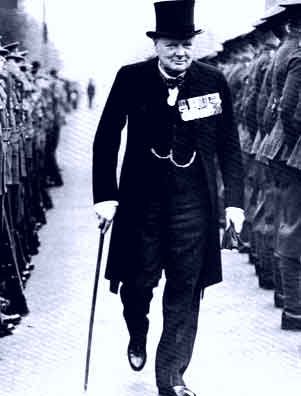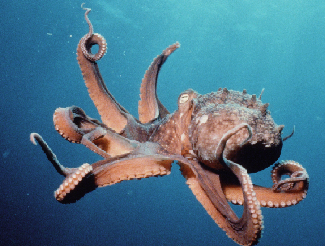Making up quotations
to suit yourself is not new. One
of the most popular fauxtations of WWI, the British army being lions led by
donkeys, was created by the man who “quoted” it, British historian Alan Clark.
He seems to have adapted it from other sources, about other wars about other
armies, to use in his book, The Donkeys,
about British military offencives during the war. As an image, it was picked up
by the creators of Oh what a lovely war, which depicted British generals as
incompetant at best, and callous butchers at worst. This image in popular
culture was still in use in Blackadder
goes forth, which had General Melchett as incompetant and callous, and had
Haig literally throw (model) soldiers into a bin while planning an attack.
But popular culture may
not be your best guide to history. A shock, I know. Douglas Haig’s reputation
went from respected
in the aftermath of the war, until his relatively early death in 1928, through to
villainy in the Sixties, as part of the antiwar movement of the time, to a more
balanced and nuanced rehabilitation more recently. No-one is claiming he never
set a foot wrong, or did not make decisions that cost thousands of men’s lives
needlessly, but his reputation as unimaginative, unfeeling, and incompetant is
nevertheless undeserved. Indeed one of his earliest critics, who criticised him
during the war, was Winston Churchill. Writing his history of World War One
afterwards, he was forced to admit, given the circumstances and resources
available to Haig, Churchill’s respect for him grew.
Water Reid’s Douglas Haig: Architect of victory is
part of the move to redress this imbalance. Reid does not argue Haig was the
best General available to the British, but he argues he was the best Commander
in Chief, a role that demands much in administration and organisation and human
resources, as well as military concerns. Haig oversaw an increase in his army
from three hundred thousand to three million men (including soldiers from the
Empire) and a revolution in military technology in the same time that has never
been equalled. Far from being unimaginative or staid in tactics, he increased
the engineering corps’ experimental section from by a factor of seventeen and
was enthusiastic to introduce new weapons such as tanks that would help his
soldiers. No other man at the time had this capability. By war’s end, the
British army was the most efficient army on earth, bringing together infantry,
armour, artillery and air support together, using tactics painfully learned,
and in an attack that drove the German army from the centre of France back to
the German border. Other experts, generals, politicians, expected the war would
last until 1919. Haig was the only one, literally, who saw how the war could
end in 1918, and was central to making it happen.
Churchil of course was
Prime Minister of Great Britain in WWII. By this stage he was a veteran of
three wars, including the First World War. He was a man of almost indominatable
courage, imagination and energy. It would not be an exaggeration I think to say
that Britain would have lost the Second World War without him. And if Britain
had lost, sought peace with the Nazi regime, how would the attack on Russia
have gone then, with a full German army concentrated on one side, and an
entirely
unsupported USSR on the other? For all of the astonishing tenacity and
courage of the Russian soldier, and their leaders’ disregard for their welfare,
the modern world would be very different.
Carol D’Este’s book Warlord: a life of Winston Churchill at war 1874 - 1945, is a study of Churchill as a warrior both on the field and as
a leader of a warring nation. As a
leader Churchill was responsible for some dreadful decisions that cost many men
their lives such as the attacks on Gallipoli, Norway, and Greece. Yet no-one
else could have done what he did, invigorated the British nation to stand and
fight when nearly all hope was gone, and their allies defeated. In his failures were elements of his
greatness – imagination, the search for a bold stroke, his unwilliness to do
nothing when danger was present. He was a flawed leader, and D’Este doesn’t
pretend otherwise but he was a great man, and in the right place at the right
time.
It is one of the
ironies of Churchill’s life that he was to oversee the transition from Empire
to a small nation on the second tier. By allying with the US and the USSR, he
ensured the defeat of Nazi Germany but he also brought in the next generation
of great powers. Churchill was central to the war effort up to 1941. Afterwards
he was not, and he knew it. He still made his presense felt, and had his
influence and of course his wonderful oratory, but Britain’s day as a world
power was waning, and all he could do was eulogise the sunset.
Churchill knew war
personally, had seen the massacre at Omdurman, (which De’Este sees as the
beginning of the war between the Muslim and the West still going on today) and fought
in the trenches in France. And yet he gloried in battle, and even in his
sixties, leading the nation, yearned to grapple with the enemy personally.
Robert E Lee said it, but Churchill knew what he meant: “It is well that war is
so terrible, else we shoud grow too fond of it.” This conundrum, love of battle
and awareness of it’s horrors also fed into Churchill’s leadership.
Churchill knew
something else. He may have forgotten it in the attack on Italy but he knew it.
Going to war means you have to know what you are fighting for, and you have to
go all in or not at all – “war to the knife”. As we grapple with the Middle
East, this is worth remembering for all our leaders.
Oh enough war. I have
a book on octopuses now.


